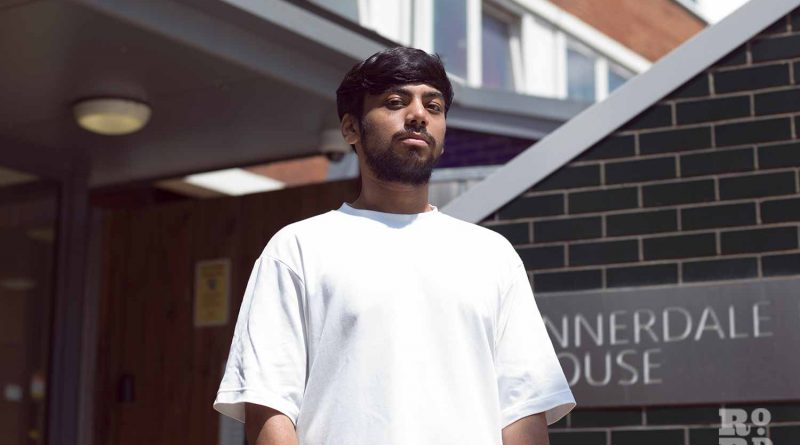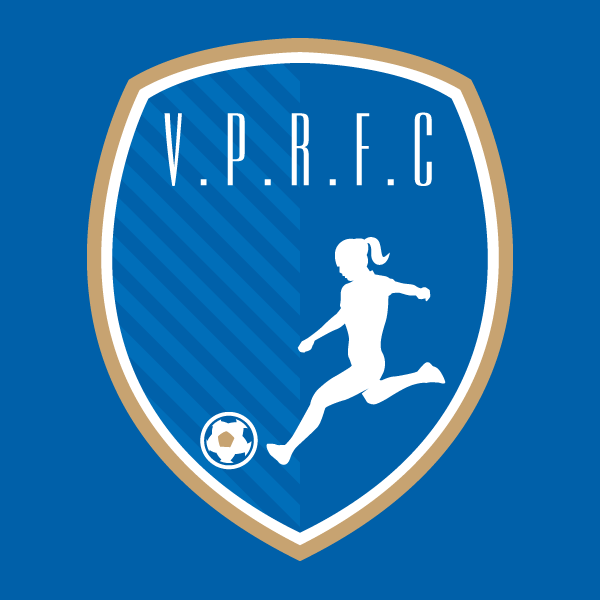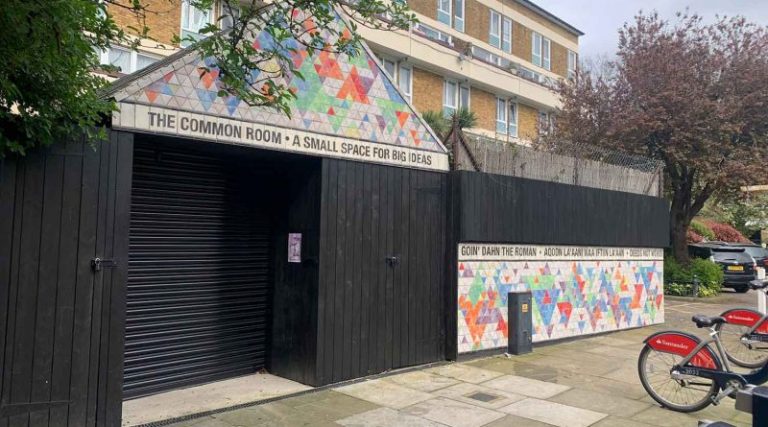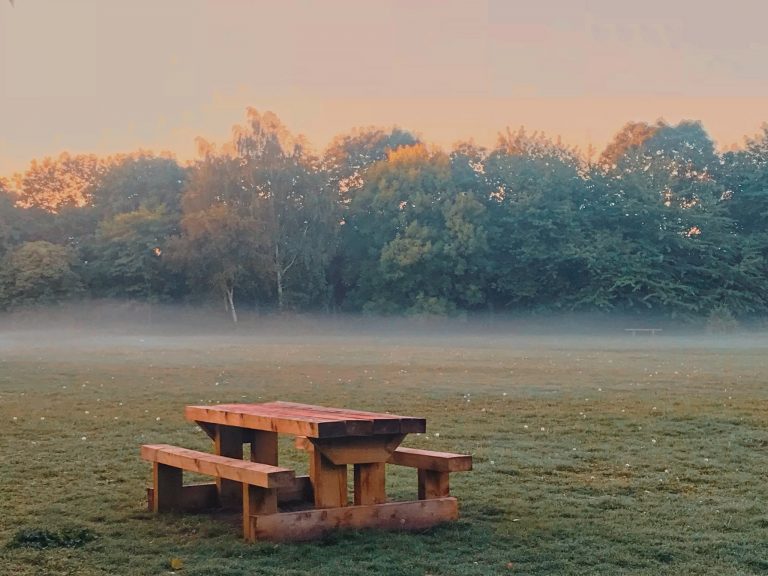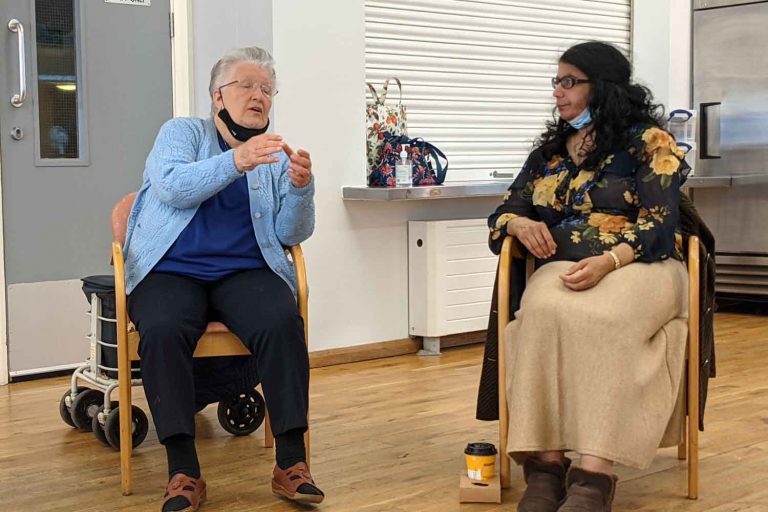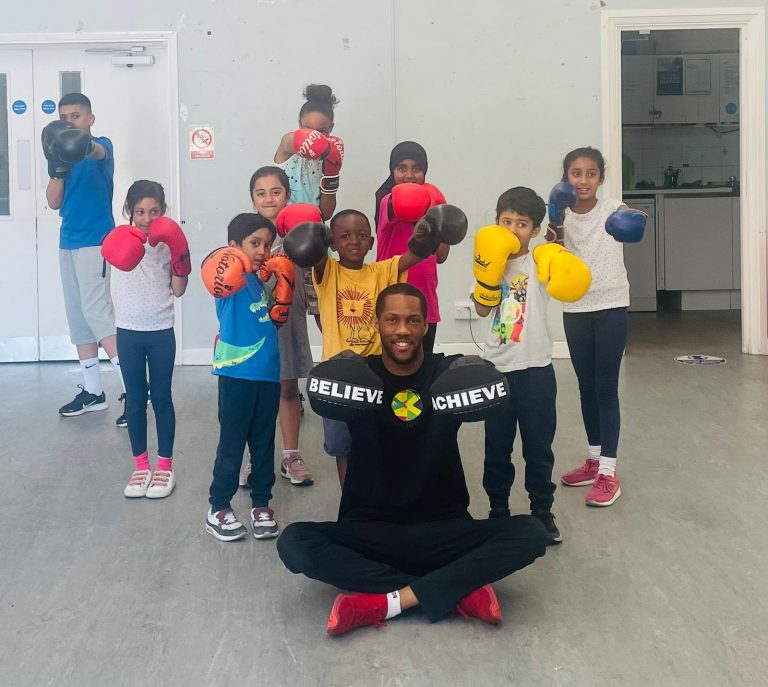This is Home: Riazul Ikram, a Bengali in Mile End
In our series celebrating diverse cultural lives in our community, Mile End-born Riazul Ikram shares his love of Mile End Park, housing costs and improving representation of Bengalis in sports.
Riazul Ikram, 21, has been living with his family in the same flat in Mile End for his whole life. With five siblings, it’s always a busy but energetic atmosphere in the Ikram household.
He went to a local primary school, Wellington Primary and then to Bow School for secondary school, where he was part of the last all-boy year group before ‘Bow Boys’ started accepting female students. Part of history.
His flat is just a couple of minutes away from Mile End Park, and it’s one that holds past and present memories. His childhood mainly consisted of him running down the street and meeting his friends there, the same friends who have been with him since.
Fast forward to the present day, going on solo walks and solo runs, he uses it as an escape from the world. Even though there are always parties, picnics, and George Irvin’s famous family funfair, Ikram resonates with the park in a different way, in his own way. Which is probably why he suggested the park as the place to meet.
Even in the blazing heat, Mile End Park radiates a sense of peace, calm and belonging. Sure, there’ll be the odd bug flying around, but they’re trying to enjoy the vibe too. There are benches everywhere, in the shade and out of the shade. Ikram often goes down the canal to have time to himself.
To support himself whilst studying Chemistry at University College London, Ikram has two part-time jobs. He works with the local youth centre Mile End Community Project to deliver revision workshops to students across London.
Ikram is also working as a spin instructor at Psycle in Shoreditch, which, judging by his Instagram account, consists of Riazul’s time at Psycle where he loves to blast all types of music, rock his head back and forth followed by motivating everyone who joins.
His local area is a huge part of who he is today, and within the conversation, you have a sense that his altruistic attitude is a reason why so many people trust him.
What is your earliest memory?
‘Weirdly enough my earliest memory is in this park. It’s so stupid but there’s this rocket that you climb up and you go really high and it’s been since I was six. I remember very vividly all of my mates being so eager to climb up and jump off and I could just never do it. I’m terrified of heights and it’s a running joke that I have with some of my friends, so my earliest memory was establishing my fear of heights in this park.’
What’s the first thing that comes to mind when I ask: What is home?
‘I think home is a place where you simply be yourself, without judgement or fear of how others perceive you. In that sense, I don’t think home is necessarily a flat or a house, it can be any area. So I’d consider this park home. I’d consider my workplace home. It’s such an integral part of who I am.’
Since you grew up here do you still visit the park to have that time to yourself?
‘100%. I remember in exam season, having that alone time with myself and trying to maintain my sanity. I remember one very specific afternoon, I had an Organic Chemistry exam the next day, and I kept telling myself I’m going to retake, I’m going to fail. So I did the one thing that I can fall back on to calm me down and walk down the small pathway here.
‘This area has barely changed, the path, the streets, the atmosphere. It’s been the one constant in my entire life.’
‘How many people live with you in your flat?’
‘There used to be seven of us until recently, so my Mum, Dad, two older sisters, and an older brother and younger brother. My brother’s moved out now but he’s still really close by which I guess shows a lot!’
When you search your name on Google, the first thing that comes up is A ‘Runners World’ article… How did that come about?
‘Runners World wanted to do an article about the impacts of running and the whole ‘Runners’ Body’ myth. I was just like… Why not?
‘Runners’ Body is the idea you have to be really tall, really slim, and have those long legs, as you see with most athletes who do running in athletics, but I wanted to challenge that. Who came up with that? If you make the effort to run, then you’re a runner. I didn’t see anyone like myself do that so when I saw Runners World looking for someone I wanted to take the opportunity.’
What is it about Mile End that has made you stay here, instead of moving out for university?
‘I think I just love nostalgia. I’d miss this place so much and I wasn’t ready to move out. I cling to those memories. Whenever there’s the end of a big chapter, so the end of secondary school, or sixth form, it normally really hits me because it’s the start of a new beginning. Interestingly, when I finished university, it just didn’t hit the same.
‘Mile End is a place where I’m completely comfortable and I feel like that feeling of belonging, and a strong community is extremely important to me and I take it for granted whenever I leave here.’
Do you share the same cultural values as your family? How have you applied that in your life?
‘I think being brought up as a Muslim, being in an area that has a lot of the Bengali community, and a lot of Islamic values such as giving back to the community or charity or helping someone who needs it, I’ve carried that with me, and I’ve learned that from a young age.
‘The main reason I work as a youth worker and instructor is because of an inherent need to try and help someone. I’ve been to private schools, I’ve been to public schools, and even though I’ve had stuff thrown at me and a few weird experiences, the common trend is that people just want help. They’re not going to take it from a teacher who they see as completely different, right? I’ve been there.
‘It’s nice to have someone you can relate to and guide you through. At the time it seems like a very difficult period in their life, and to have someone be like, ‘Trust me, it’s not, because I’ve been there’ that’s when the cog starts turning.
‘That’s when it’s really sweet, actually, because I’ve had a couple of sessions where it’s always the ones who take the piss out of you the most. They’re like, “Oh, what’s the point?” because being from these sorts of areas, I guess some think they need to put up a persona where they don’t want to show weakness. But then they come up to you afterwards, you get an “I really needed that” and this is why I do what I do.’
You’ve been here your whole life… Despite the cost-of-living crisis do you still see yourself living here in the future?
‘It’s a truth that I’ve been avoiding for so long and it’s that I will need to leave here at some point because it’s just unsustainable. Financially it’s getting difficult but I’ve got a lot of foundations here, I’ve been able to grow up in such an amazing place where, if it doesn’t work out if I move for whatever reason, I can always come back.’
The schools you attended are all very local, how did that shape who you are today?
‘It’s a real split. Because I feel like initially an all-boys school in East London was a real eye-opener. You do get the people who you get along with instantly but then you’ll get the people that get into the wrong sorts of crowds.
‘That’s why I try to think outside the box and look for more representation of the Bengali community especially those in Tower Hamlets. That’s why I did things like the Runners World article and becoming a spin instructor. There are special people living here, they just need to take that risk in life because the worst thing you’ll get is a no, and the best thing you’ll get is a chance at a new opportunity.’
If you were the headteacher at your school, what is the one thing you’d try and do differently?
‘I think about how different it would have been if there was someone who even had an ounce of relatability because the people that ever told them off, were all from a different background.
‘I’m not saying you have to dumb yourself down to talk to these people but what I am saying is that you have to show us some sort of empathy and understanding to know why they might feel this way.’
What would your message be to those who want to reach out but feel there’s no one there to reach out to?
‘What I would say is whilst you may feel like all the cards are dealt against you, you haven’t got this far, to only get this far. If you could put in that extra 1% of effort, it’s 1% more than what it was before.
What’s one phrase that keeps you going?
‘You miss 100% of the shots you don’t take.
Thanks, Michael Jordan, for that one!’
If you liked this you may enjoy reading This is Home: A Mongolian in Bow.

